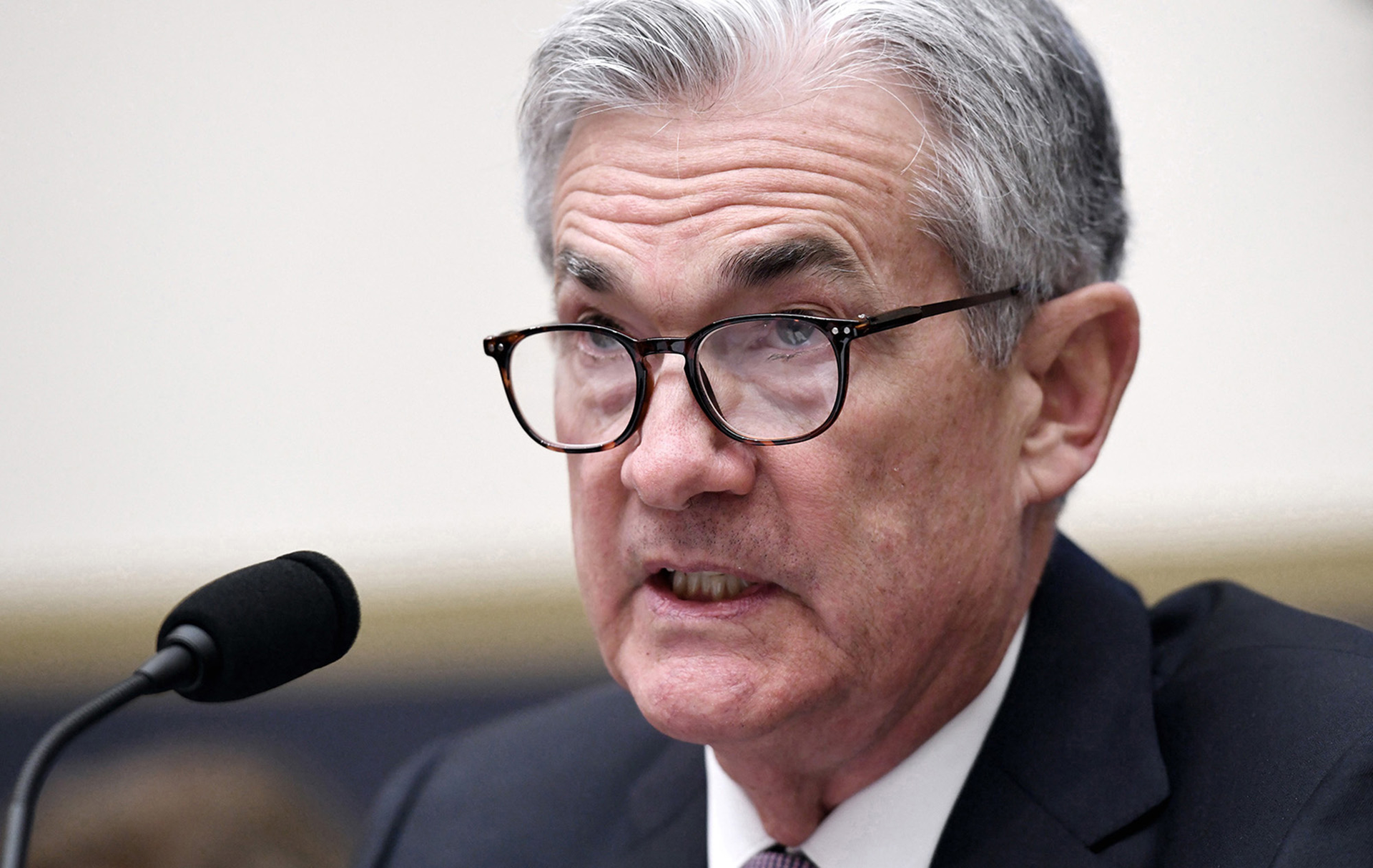Jerome Powell is likely to leave Federal Reserve interest-rate cuts firmly on the table when he appears before Congress this week, even though the latest U.S. jobs report dialed down the urgency to ease borrowing costs.
The Fed chairman, who has been hectored for months by President Donald Trump for not cutting rates, will probably repeat language from the Federal Open Market Committee’s June statement that it will “act as appropriate” to sustain the economic expansion — reinforcing bets the central bank will cut at its July 30-31 meeting.
Powell gives his semiannual monetary policy testimony at 10 a.m. Wednesday before the House Financial Services committee and a day later to the Senate banking panel. Lawmakers including Democratic presidential candidate Elizabeth Warren are expected to question him about a range of issues such as Trump’s attacks, the state of the economy and Facebook Inc.’s new currency plans.
“He’s going to have to send a clear signal this week: go, no go, or still unsure and watching the data,” said Stephen Stanley, chief economist with Amherst Pierpont Securities. “If he continues to be ambiguous, the markets probably will assume that he approves of market pricing, so he might as well take a position.”
Investors are fully pricing in a 25 basis point move. Here are five things to watch out for in his testimony:
Risk Assessment
Powell’s updated assessment of risks to the U.S. outlook will be especially important, since rising concerns would be the rationale for rate cuts. The Fed’s monetary policy report released Friday highlighted a significant weakening in global trade growth and manufacturing since 2017. Uncertainly has weighed on business investment and tariffs have had a “material but modest” direct impact on global trade flows, according to the study.
“Powell has made it clear that, if necessary, the Fed will take steps to assure the continuation of the expansion,” said Ward McCarthy, chief financial economist at Jefferies. “What is not clear is what would trigger the Fed take these steps. I am looking for him to provide some clarity.”
The addition of 224,000 jobs in June, far more than economists expected, would tend to suggest there’s less urgency to offset a global economic slowing. The Labor Department report Friday showed no wage pressures, with average hourly earnings steady at 3.1%, and an expansion of the labor force signals there may still some slack in the job market.
Seeing Headwinds
The stock market has hit new highs as concerns over the U.S. trade battle with China have eased in recent weeks. But at the same time, growth slowed in the second quarter, and is tracking about a 1.3% annual rate, according to the Atlanta Fed’s tracker.
“He will affirm the economy remains solid, if not spectacular,” said Diane Swonk, chief economist at Grant Thornton. “What matters most is what he sees as headwinds and how he characterizes those risks. They are driving the desire to do an insurance cut.”
Trump Attacks
Powell is likely to be asked to respond to repeated criticism from Trump and pressed to discuss his conversations with the president. “We don’t have a Fed that knows what they’re doing,” Trump said July 5.
The president has said he has the right to fire or demote Powell, while the Fed chief has said he intends to serve his full four-year term as chairman and “the law is clear” on that issue.
“Powell will continue to stress Fed independence, that the committee is made up of a number of people and there’s a strong debate,” said Sarah House, senior economist at Wells Fargo & Co. “The answers will be short and he will try to move on.”
Democrats in Spotlight
The questioning of Powell from two members of Congress in particular will merit some special attention.
Senator Warren of Massachusetts, a Democratic presidential candidate, has typically direct, confrontational questions that have sometimes wrong-footed Fed leaders. Freshman Representative Alexandria Ocasio-Cortez, a self-described socialist and social-media star, has proven to be an adept inquisitor during congressional hearings.
They or others could press Powell to explain the Fed’s yearlong review of its framework for monetary policy. With inflation missing the central bank’s 2% goal for most of seven years, the Fed is considering adopting a new approach that could include overshooting its target to compensate for misses on the low side in the past.
Big Banks
Powell is also expected to be asked about the Fed’s most high-profile efforts to oversee U.S. banking.
The agency is nearing a proposal to overhaul the Volcker Rule that limited Wall Street banks’ ability to trade after the 2008 financial crisis. It’s also weighing a big-bank merger between BB&T Corp. and SunTrust Banks Inc., which has drawn criticism from some Democratic lawmakers and consumer groups.
Another hot regulatory topic for the Fed has been how it and other financial regulators will handle emerging digital currencies, such as Facebook’s Libra. Powell has said he had discussions with that company about its plans.
———
(With assistance from Jesse Hamilton.)
———
©2019 Bloomberg News
Visit Bloomberg News at www.bloomberg.com
Distributed by Tribune Content Agency, LLC.
Thanks for reading CPA Practice Advisor!
Subscribe Already registered? Log In
Need more information? Read the FAQs




